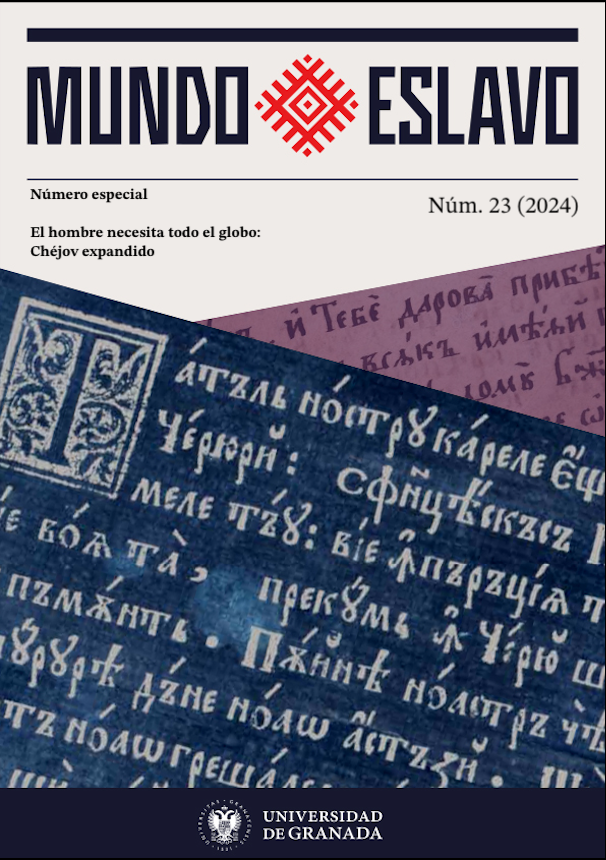El concepto del arte real en el manifiesto OBERIU
DOI:
https://doi.org/10.30827/meslav.23.28760Abstract
This article places the literary movement OBERIU (in Russian, ОБЭРИУ, name presented by an acronym which means the Union of Real Art, in Russian, Объединение Реального Искусства) formed in Leningrad, the USSR, in 1927 and analyses its unique manifesto published by this group in January 1928, whose translation into Spanish is offered below. Apart from the information about the artistic sections that form this current, this proclamation mentions the authors who formed part of it and their creative paths. Moreover, as can be observed throughout the text, the writers justify the importance of the word “real”, which appears in the name of this union and represents an essential part of the members’ philosophy. In addition, considering the historical-political context and the beginning of the repressions in the USSR literary field, the group tries to connect their activity defending the proletariat. Although OBERIU officially existed only for a very brief period of time (1927–1930), its ideas continued the task of the previous avant-gardes and enriched this field with new experiments.
Downloads
Downloads
Published
How to Cite
Issue
Section
License
Copyright (c) 2024 Mundo Eslavo

This work is licensed under a Creative Commons Attribution-NonCommercial-ShareAlike 4.0 International License.

CC BY-SA: This license allows reusers to distribute, remix, adapt, and build upon the material in any medium or format, so long as attribution is given to the creator. The license allows for commercial use. If you remix, adapt, or build upon the material, you must license the modified material under identical terms.
CC BY-SA includes the following elements:
BY ![]() – Credit must be given to the creator
– Credit must be given to the creator
SA ![]() – Adaptations must be shared under the same terms
– Adaptations must be shared under the same terms
Authors who publish with this journal agree to the following terms:
1. Authors retain copyright and grant the journal right of first publication with the work simultaneously licensed under a Creative Commons Attribution License that allows others to share the work with an acknowledgement of the work's authorship and initial publication in this journal.
2. Authors are able to enter into separate, additional contractual arrangements for the non-exclusive distribution of the journal's published version of the work (e.g., post it to an institutional repository or publish it in a book), with an acknowledgement of its initial publication in this journal.
3. Authors are permitted and encouraged to post their work online (e.g., in institutional repositories or on their website) prior to and during the submission process, as it can lead to productive exchanges, as well as earlier and greater citation of published work (See The Effect of Open Access).













